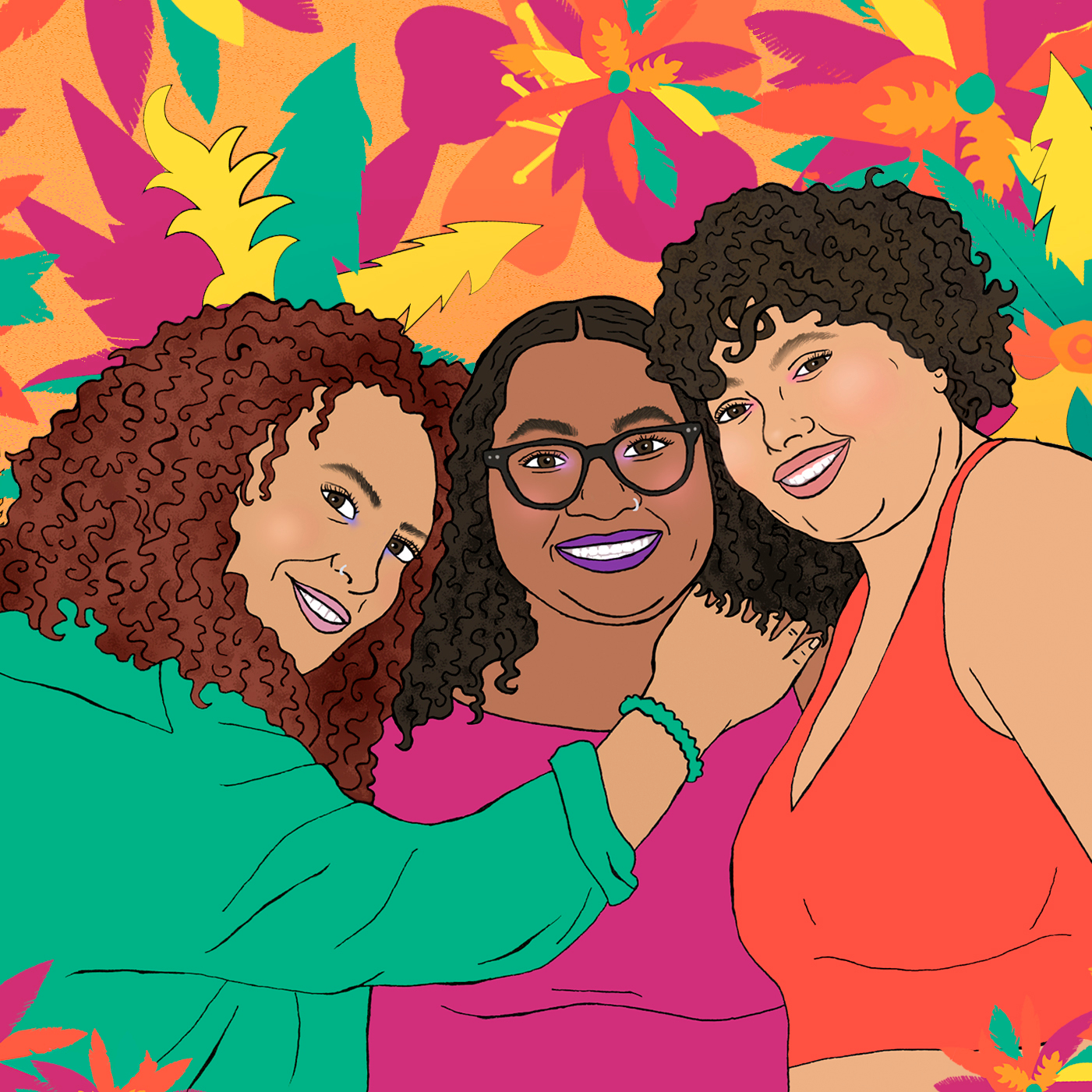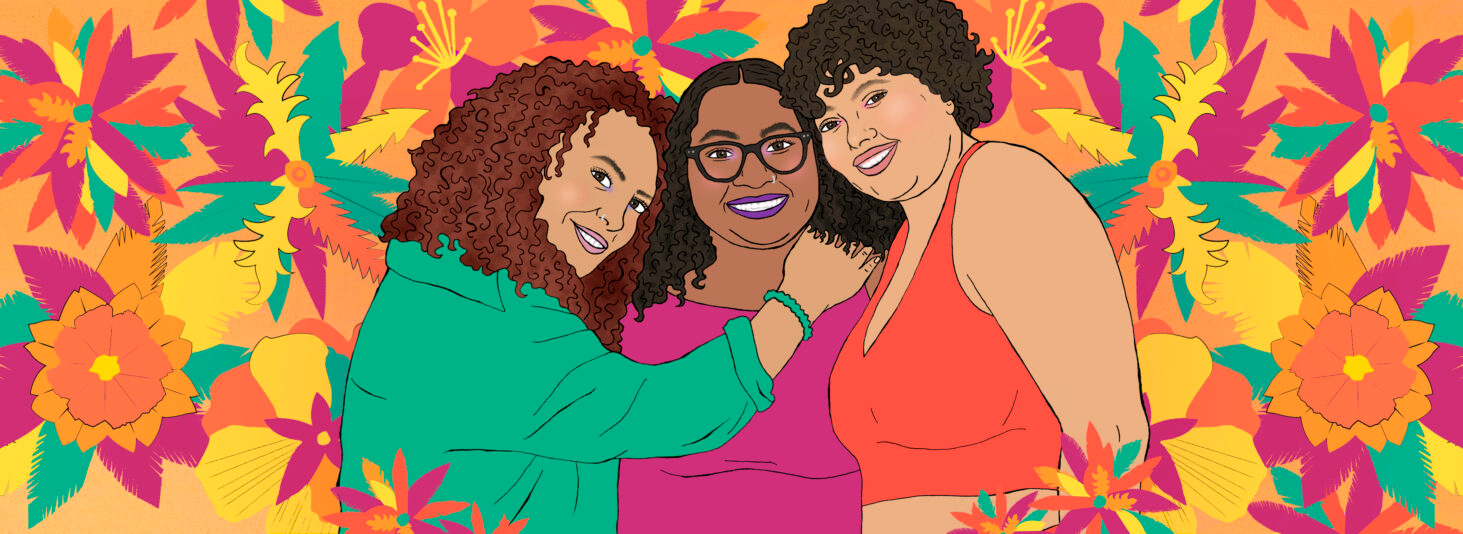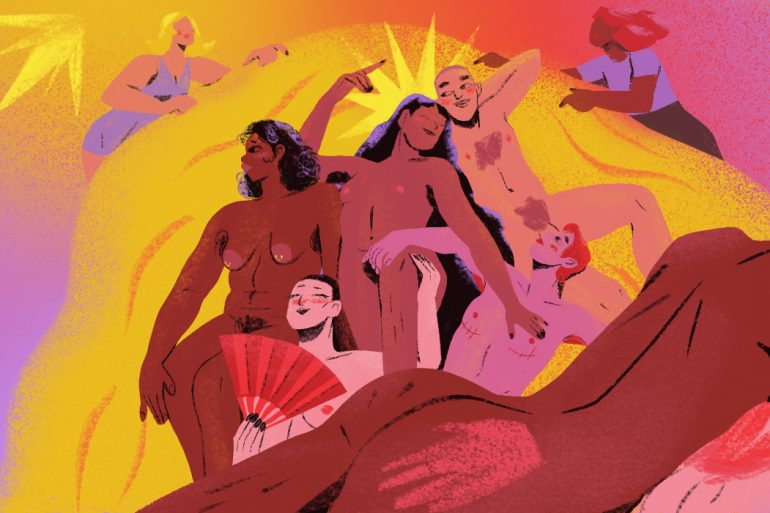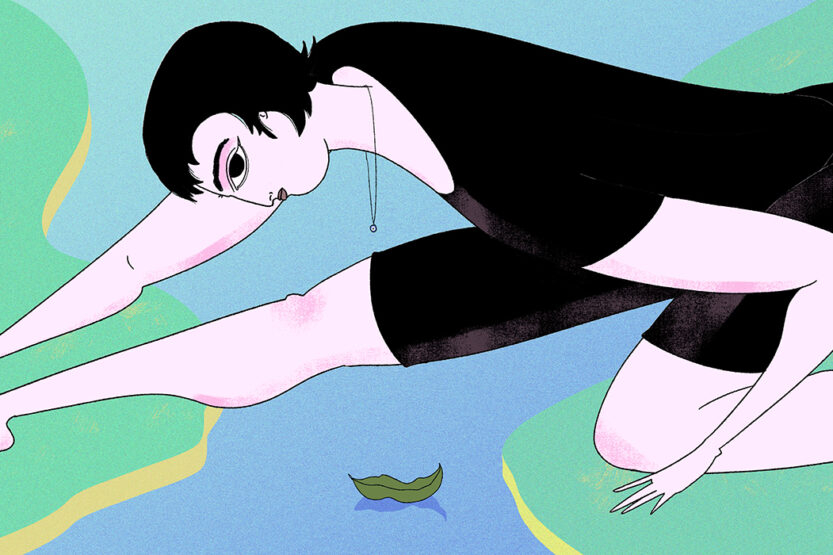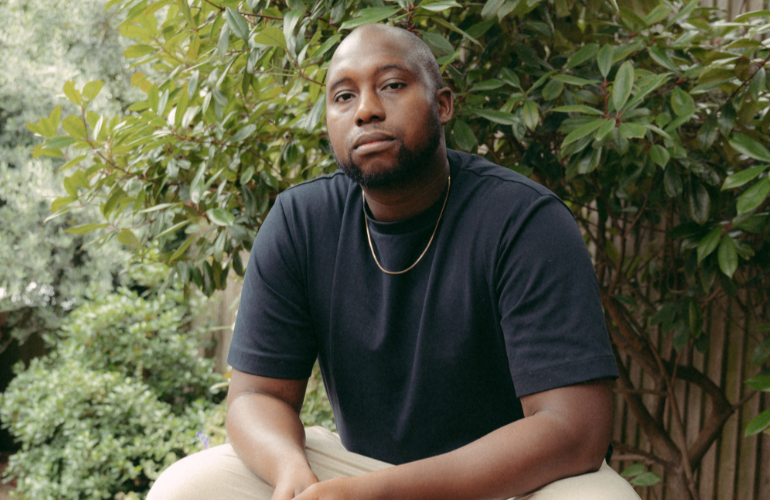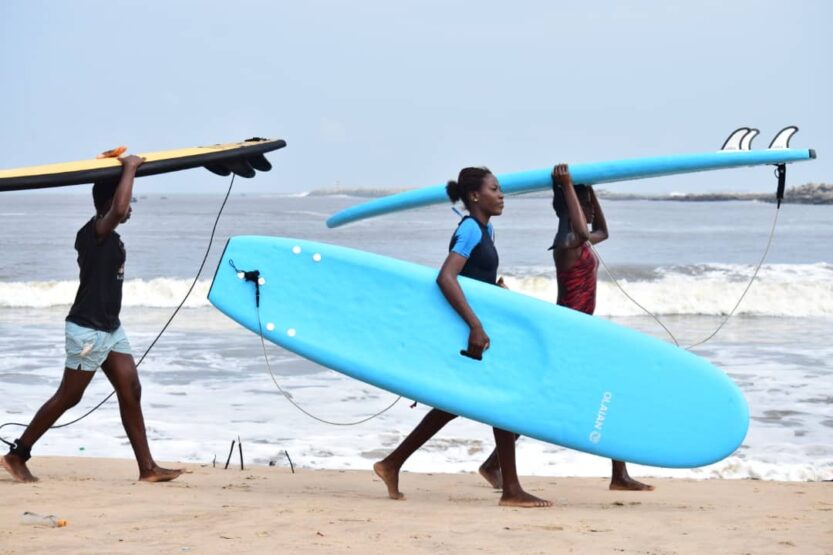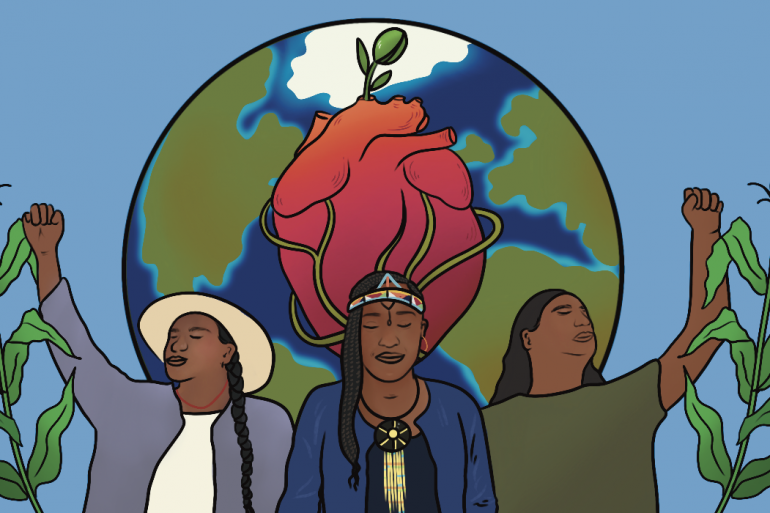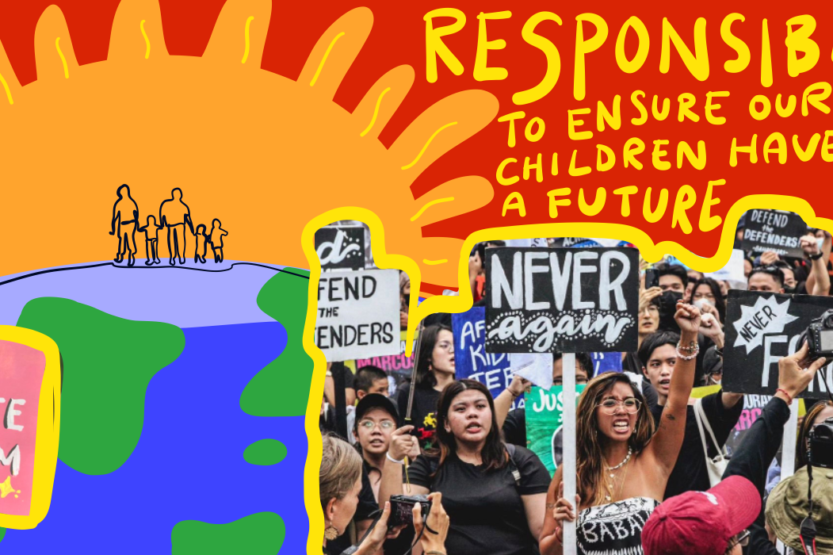The field has begun to bloom after years of drought. In the midst of a political climate where the voices of racialised, Black, and Indigenous communities are being suppressed and invalidated on a daily basis, the seeds planted by Valeria Angola, Scarlet Estrada, and Marbella Figueroa – the three Afro-Mexican women behind Afrochingonas – vindicate flowering as an act of resistance that lies in the collective embrace of identity.
Afrochingonas is an interdisciplinary grassroots project on anti-racism, which also happens to be the Afro-Mexican women-led podcast with the highest rating in Mexico City. The anti-racist collective represents a safe digital environment for Afro-Mexican women to reflect on their political identities, in a national context in which speaking out against racism and gender-based violence often translates into life-or-death situations for its campaigners.
Afrochingonas is working to uncover the deep and complex wounds of colonialism, by advocating for racial justice in their blogs, workshops, podcast episodes, and study circles. The radical displays of mutual support within the group serve as an example of how suffering may be overcome through collective struggle.
The influence of childhood experiences in the creation of Afrochingonas’s narrative shelter
In mid-2020, Afrochingonas emerged as an outreach, creation, and research project, aimed at socialising critical perspectives on anti-racism. What initially served as an exercise for three Afro-Mexican women to reflect upon their daily lives during the COVID-19 pandemic, has now become a home for the more than 20,000 people who have found shelter in their words and actions.
Well-aware of the scars that have marked their stories and bodies since the day they were born, the three members of Afrochingonas do not limit themselves to inhabiting Afro-descence from the threshold of pain. Narrating their experiences from a place of victimhood contradicts the sense of empowerment that they have claimed and regained over the years.
“To the little girl scarred by sour experiences who learned to embrace herself and the curve of her curls, let the following serve as a statement. In the prospective horizon, there is a woman who will take her by the hand and accompany her on the road towards healing,” suggests Scarlet, as she reminisces the memories of her childhood years.
Intergenerational healing underscores the significance of mutual support as a cyclical process of healing and empowerment across generations. Our adults today may not be able to ‘stretch a hand’ to yesterday’s child. Mutual support lies in letting ourselves be lifted by the outstretched hands of others and, in order to perpetuate the cycle, in learning to hold someone else’s to help them heal.
The reality for children in Mexico’s current political climate
Given their own experiences with racism as children and the influence of the latter in Afrochinginas’s advocacy, its three members are mindful of the prospect of rejection and discrimination to which Afro-Mexican children are exposed to in today’s political climate.
Child violence in the nation has far more serious consequences than social marginalisation and political under-representation, from which Afro-Mexican children are already a target. Afro-Mexican children are more likely to experience higher rates of structural violence, being particularly vulnerable to human rights violations by the State itself.
Valeria affirms that both social collectives and the Mexican State are far from providing fair representation of Afro-Mexican children’s experiences with violence in their initiatives. “Children are a population that has not been properly taken care of, neither by the Mexican State nor within social collectives. The damage that is intended to be repaired ends up being reproduced in their trenches,” she explains.
The National Migration Institute appears to be working against the mobility rights of Afro-Mexican and Afro-Latin American children attempting to escape drug cartels, human trafficking, and organised crime.
As of 2022, more than 96,000 children have been detained in Migration Stations – state facilities where irregular migrants are forced to stay until their immigration status is determined. The extreme violence from which Migration Stations are intended to serve as a refuge, ends up being reproduced and amplified in the more than 52 enclosures that comprise the Mexican Southern Border.
Beyond the need for fair political representation, children must be socially deemed as major actors of influence in the reshaping of collective culture. From the impartiality of children’s perspectives, lessons can be learned to build a dignified horizon where no racialised, Black, or Indigenous person is deprived of their human right to safe mobility within and across borders.
“Today’s childhoods give us the chance to rediscover new ways of relating and interacting with each other,” Scarlet says. “However, the process starts with us, by realising that our inner child is still there. A thoughtful glance is all it takes to reconnect with him or her again.”
Narrarnos Juntas: Afro-Mexican art as a collective cry of resistance
A core part of Afrochingonas’ work has been to reframe acts of resistance into demonstrations of joyful rebellion.
One of their most recent exhibitions is temporarily based at Centro Cultural Universitario Tlatelolco, one of Mexico City ‘s most important cultural and artistic venues. Afrochingonas is one of the lead curators of Narrarnos Juntas, an Afro-Mexican-led artistic exhibition inspired by the need to promote and publicise the works of Afro-Mexican artists within the context of community resistance. It is through the convergence of diversity that the exhibition manages to communicate powerful messages against racial profiling, class discrimination, sexual abuse, hate crimes, and femicides.
“We worked side by side with researchers, social anthropologists, visual artists, and writers on an exhibition that would socialise the internal pedagogy of our collectives”, Valeria stresses. “Allying ourselves with each other. Recognising each other. Meeting with each other to narrate ourselves in order to collectively emerge from pain and violence, is a revolutionary act of rebellion and freedom.”
Afrochingonas are sowing the seed of resistance, reminding us that in the face of oppression, embracing one’s true identity is an act of unwavering strength. In an era where enforcing children’s human rights has become critical, Afrochingonas urges us all to view anti-racism as a means for fair intergenerational representation and meaningful inclusion in our societies.
The field has begun to bloom after years of drought. Its flowers are being nurtured by the joyful rebellion of the people. In an ageing world, let us live as children. Let us inhabit boundless horizons with no traced borders. Let us remember to see ourselves from the flesh we inhabit, rather than from the clothing that hides our true colours.
What can you do?
- In Afrochingonas’ podcast episode We are not feminists, its members introduce the audience to a critical view on the feminist movement, as they highlight the importance of promoting an indivisible sense of justice.
- Join Afrochingonas’ discussion on “Racialized masculinities”, as they delve into the stereotypes surrounding gender-based violence, and violence against racialized, Black, and Indigenous men.
- Further your knowledge on collective resistance for mutual aid, by listening to Afrochingonas discussion on “Rising from the threshold of pain”.
- Afrochingonas emphasises the urgency of overthrowing Mexico’s immigration policy of racial profiling, which violates the mobility rights of Afro-Latin American migrants. Learn more about the issue in their media campaign on how to raise awareness and drive collective action.
Other articles related to Mexico:
Subscribe to shado's weekly newsletter
Exclusive event news, job and creative opportunities, first access to tickets and – just in case you missed them – our picks of the week, from inside shado and out.

- Inside La Comuna Lencha-Trans, a queer space of refuge and resistance in the heart of Mexico City
- Beating transnationals and building community resilience in Puebla, Mexico
- Indigenous communities in Mexico are confronting narcos and mining by building autonomy
- How Nahua Indigenous communities in Mexico took on Danone in defence of water and life
